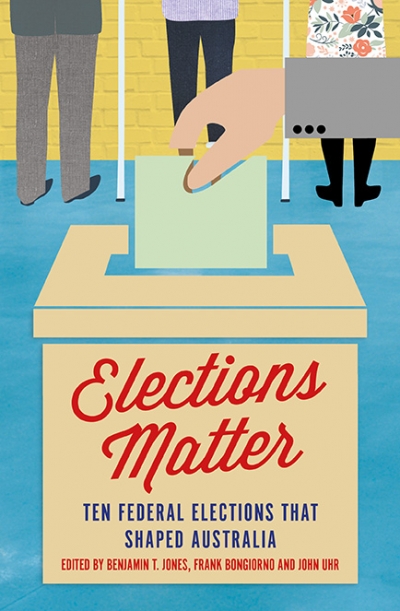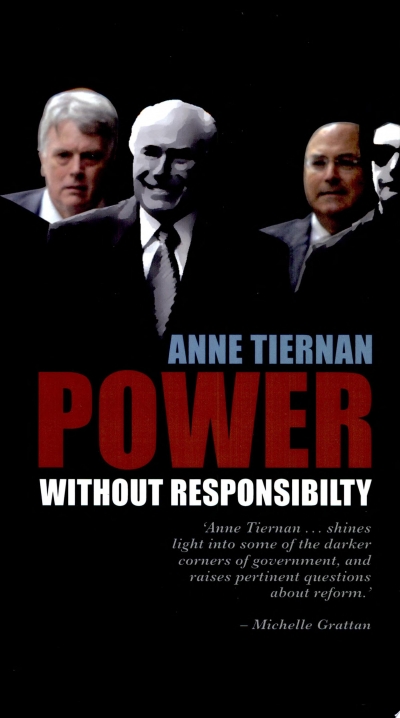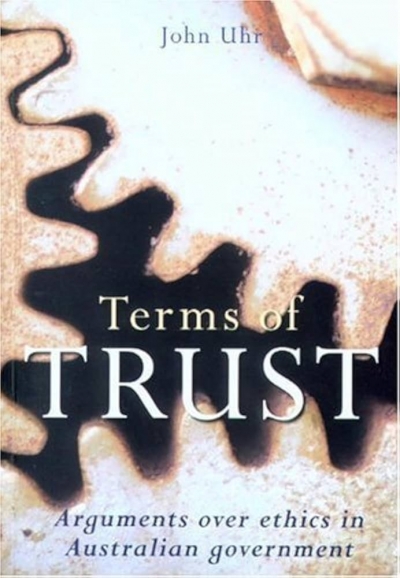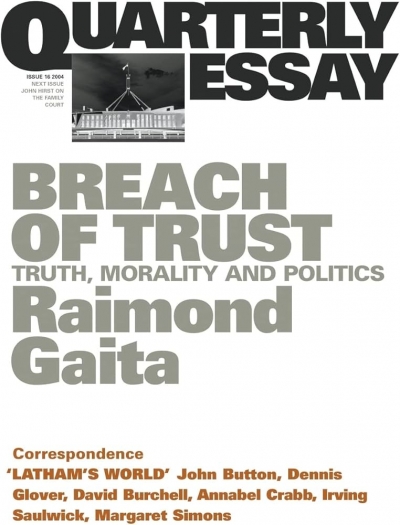John Uhr
Elections Matter: Ten federal elections that shaped Australia edited by Benjamin T. Jones, Frank Bongiorno, and John Uhr
by Lyndon Megarrity •
Power Without Responsibility?: Ministerial staffers in Australian governments from Whitlam to Howard by Anne Tiernan
by John Uhr •
Quarterly Essay 16: Breach of trust: truth, morality and politics by Raimond Gaita
by John Uhr •




